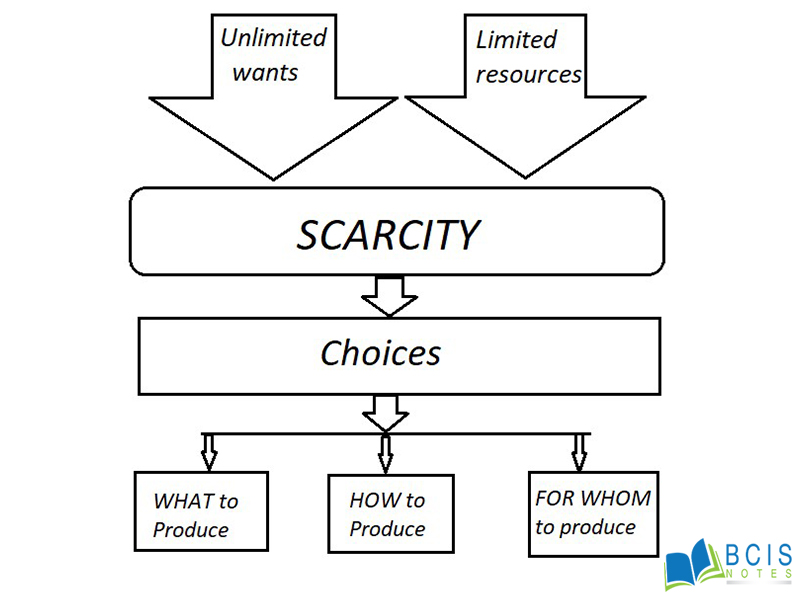
Introduction to Microeconomics
The term micro is derived from the Greek word ‘mikros’, which means ‘small’. Microeconomics thus deals with the study of small components of the economy or individual i.e. studies the economic behaviour of individual units, maybe a person, a particular household, or a particular firm. In this sense, introduction to microeconomics is referred to as a microscopic study of the economy.
According to Alfred Marshall’s ‘Principle of Economics’ is an important contribution to the field of microeconomics. It deals with ‘marginal analysis’ which is assumed to be an important tool of microanalysis.
Macroeconomics is the study of nature, relationship and behaviour of aggregate economic variables such as National income, Employment level, Total consumption, saving and investment, general price level, trade cycle, etc.
Problem of scarcity
A resource is scared if demand for it exceeds its supply. A condition in which resources are not available in adequate amounts to satisfy all the wants and needs of the people. The problem of scarcity, and thereby choice has to be made between ends (unlimited wants) and means (limited resources). Due to the scarcity of resources, we have to constantly match the ends and means.

fig: the problem of scarcity
1. What to produce?
What to produce refers to the problem of production. Due to the cause of limited resources, a film must decide what to produce. For example:- if a society wants to start a biscuit factory, it must have a clear idea about product cream, labour, capital, land, and entrepreneurship is available for the production or not, can there be any problem in the off-season, etc.
2. How to produce?
Since resources are scarce in society. A film must understand the best way to produce any good. For this, it should use the best resources for production and use such technology that would use the resources in the best manner. Besides, it must be able to produce the outputs in the least cast such that it will accept universally.
3. For whom to produce?
A Society must decide the target group for its output. Due to the cause of the income gap and unequal distribution of the nation’s resources, some people are poor while others are rich. A society must decide which group it wants to target. If it produces at a lower cost then the poor people can use it. If the output price is very high then only rich people can get it.
4. How to maintain economics?
This is a major problem of scarcity and a macroeconomic problem. The economic growth rate affects the production of a society, and the overall demand for the growth is negative, then the demand will be lower and production should be limited.
A mechanism to solve the economic problem
• Free market Mechanism
It controls the problem of scarcity in a free market where the price is determined by the demand and supply and commodity. The problem of what to produce can be solved by a price mechanism. Producers will only produce that product which is demanded by society. It solves the problem of how to produce. He can choose either a capital-intensive technique or a labour-intensive technique for production. If there is no government intervention, it solves the problem of whom to produce. The producer will produce the goods for those consumers who are willing to get it and have the capacity to pay for it. It solves the problem and economic system and economic growth.
• Centralize Market Mechanism
The government solves the problem of what to produce, how to produce and for whom to produce by imposing taxes and providing subsidies to the needed people. The government solves the problem of needed people. The government solves the problem of distribution and maintaining the growth of the economy.
• Mixed Market Mechanism
The government controls the market. The role played by the price mechanism in the free market is played by the price mechanism in the free market is played by the government in this case.
You may also like: Basic Economic Issues

Leave a Reply